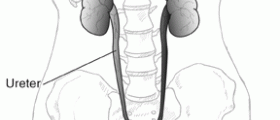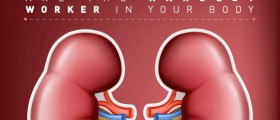
Chronic Kidney Failure - Symptoms and Signs
All symptoms and signs of chronic kidney failure are actually associated with kidneys' inability to filtrate toxins, waste products and eliminate water and different electrolytes from the body. As a result there is decreased urine output (in terminal stage no urine output at all), nausea, vomiting, loss of appetite, fatigue, muscle twitches and cramps, swelling of feet and ankles and persistent itching. The condition is also accompanied by sleep problems and decreased mental sharpness.
All the mentioned may also affect patients suffering from other illnesses so only a well experienced doctor can make differential diagnosis and after additional tests and exams rule out other conditions and confirm the presence of chronic kidney failure.
Underlying Causes of Chronic Kidney Failure
A variety of illnesses may cause significant damage to kidney tissue and initiate kidney failure. In case the particular condition is not treated properly or is severe in nature the damage progresses eventually leading to complete loss of kidney functions. Chronic kidney failure is associated with diabetes mellitus (particularly type 1), kidney stones, bladder cancer, vesicoureteral reflux disease, pyelonephritis, glomerulonephritis, polycystic kidney disease, lupus, scleroderma,vasculitis, renal artery stenosis etc.
Chronic Kidney Failure - Treatment Options
Treatment for chronic kidney failure is rather complex and has three goals. Namely, it is supposed to treat the condition that has initiated kidney failure, then to treat complications caused by chronic kidney failure and, finally, to provide suitable relief from symptoms associated with terminal stage of kidney failure.
Eve though the underlying condition responsible for kidney damage may be brought under control the damage that has been done to kidneys may have led to irreversible loss of kidney functions. Such treatment is, therefore, only effective against the underlying condition while kidneys may remain damaged for good.
Complications of chronic kidney failure require plenty of different medications such as drugs for hypertension (ACE inhibitors), hypercholesterolemia, medications which treat anemia, medications to eliminate excess fluid from the body (diuretics), calcium and vitamin D (protection of bone tissue). Such patients are also due to have a low-protein diet which minimizes the amount of many waste products in the blood.
And finally, in spite of optimal treatment practically all patients suffering from chronic kidney failure eventually end up on dialysis and require a new kidney (kidney transplantation).

















Your thoughts on this
Loading...